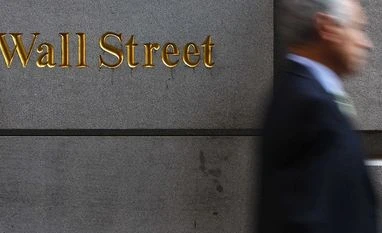The Federal Reserve meets next week and the US government releases an important report on jobs, but investors could be forgiven for having something else on their minds.
The heated US presidential campaign, which for months has grabbed the bulk of US news headlines, enters its final stretch next week before the November 8 vote, and the race between Democrat Hillary Clinton and Republican Donald Trump of late has provided market-moving surprises.
In the latest reminder of how an upset in the expected outcome could rattle investors, news came on Friday that the Federal Bureau of Investigation is reviewing fresh evidence in its probe of Clinton’s email server.
“We’re so close to the election, and the pots are boiling. There’s always something going on,” said Bucky Hellwig, senior vice president at BB&T Wealth Management in Birmingham, Alabama.
“And where there’s uncertainty with the Oval Office, it seems to historically cause problems for the market.”
Wall Street has been expecting Clinton to win her White House bid but Republicans to retain at least the US House of Representatives, essentially keeping the current state of political gridlock.
In recent weeks, Clinton’s lead has widened in polls, causing some concern about the Democrats potentially winning control of both the presidency and Congress.
“That would be bad for certain sectors including health care and perhaps the financial sector,” said Ed Campbell, a portfolio manager at QMA, a multi-asset manager owned by Prudential Financial. “But I don’t think that’s likely to happen.” Investor expectations also are low that the Fed will raise interest rates when it meets Tuesday and Wednesday, especially since the meeting falls just days ahead of the election.
The chances appear to be less than 10 per cent that the Fed will raise rates next week, while there’s about a 75 per cent chance the Fed will hike rates in December, according to the CME Group’s FedWatch tool on Friday.
“I think it’s largely going to be a non-event,” Campbell said. “They’d be loath to surprise the market, especially one week before the election.”
What could shake equities, however, is any comment from the Fed that could indicate the possible timing of the next hike.
At the Fed’s November meeting last year, it tweaked its policy statement to specifically reference the next policy meeting as a date of a possible rate lift-off, a move that grabbed investors’ attention.
The Fed then in December raised rates for the first time in nearly a decade.
If it’s strong enough, Friday’s jobs report could bolster already broad expectations that the Fed will raise rates again this December.
Economists polled by Reuters show expected nonfarm job gains of 175,000 for October, up from 156,000 the previous month.
“Post-election day, you might see a little bit of relief but then you start worrying about the Fed,” said Steve Chiavarone, portfolio manager at Federated Investors.
The heated US presidential campaign, which for months has grabbed the bulk of US news headlines, enters its final stretch next week before the November 8 vote, and the race between Democrat Hillary Clinton and Republican Donald Trump of late has provided market-moving surprises.
In the latest reminder of how an upset in the expected outcome could rattle investors, news came on Friday that the Federal Bureau of Investigation is reviewing fresh evidence in its probe of Clinton’s email server.
More From This Section
That briefly pushed stocks down sharply and drove the CBOE Volatility Index .VIX - Wall Street’s fear gauge — to a two-week high.
“We’re so close to the election, and the pots are boiling. There’s always something going on,” said Bucky Hellwig, senior vice president at BB&T Wealth Management in Birmingham, Alabama.
“And where there’s uncertainty with the Oval Office, it seems to historically cause problems for the market.”
Wall Street has been expecting Clinton to win her White House bid but Republicans to retain at least the US House of Representatives, essentially keeping the current state of political gridlock.
In recent weeks, Clinton’s lead has widened in polls, causing some concern about the Democrats potentially winning control of both the presidency and Congress.
“That would be bad for certain sectors including health care and perhaps the financial sector,” said Ed Campbell, a portfolio manager at QMA, a multi-asset manager owned by Prudential Financial. “But I don’t think that’s likely to happen.” Investor expectations also are low that the Fed will raise interest rates when it meets Tuesday and Wednesday, especially since the meeting falls just days ahead of the election.
The chances appear to be less than 10 per cent that the Fed will raise rates next week, while there’s about a 75 per cent chance the Fed will hike rates in December, according to the CME Group’s FedWatch tool on Friday.
“I think it’s largely going to be a non-event,” Campbell said. “They’d be loath to surprise the market, especially one week before the election.”
What could shake equities, however, is any comment from the Fed that could indicate the possible timing of the next hike.
At the Fed’s November meeting last year, it tweaked its policy statement to specifically reference the next policy meeting as a date of a possible rate lift-off, a move that grabbed investors’ attention.
The Fed then in December raised rates for the first time in nearly a decade.
If it’s strong enough, Friday’s jobs report could bolster already broad expectations that the Fed will raise rates again this December.
Economists polled by Reuters show expected nonfarm job gains of 175,000 for October, up from 156,000 the previous month.
“Post-election day, you might see a little bit of relief but then you start worrying about the Fed,” said Steve Chiavarone, portfolio manager at Federated Investors.
)